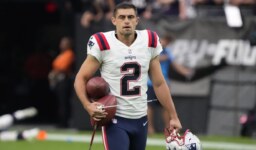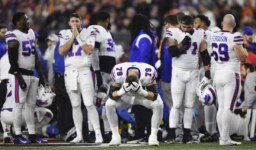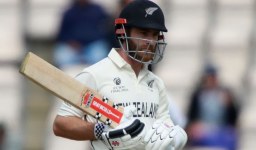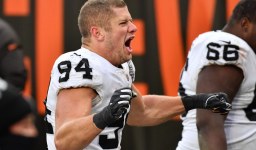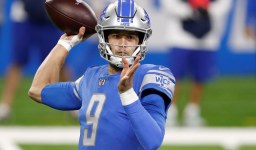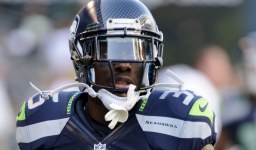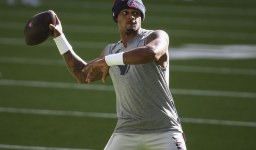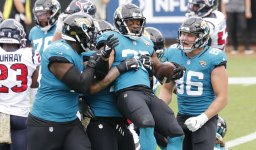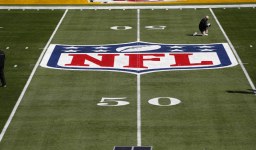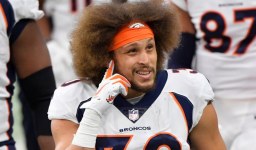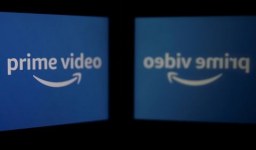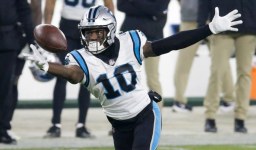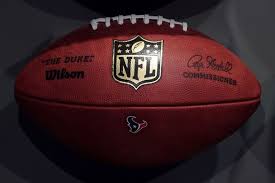
By Gabriella Borter
TAMPA, Fla. (Reuters) – Onika St. Louis, a nurse at Tampa General Hospital, said her decision to get the COVID-19 vaccine was a “no-brainer” once she did her research and considered the immunity benefits it would offer her on the pandemic front line.
At the time, she had no idea an additional benefit from the shot would be her chance at a free ticket to the Super Bowl.
Now St. Louis is one of 7,500 healthcare workers from around the country who received invitations to Sunday’s National Football League showcase between the Kansas City Chiefs and the Tampa Bay Buccaneers, provided they had received both doses of the vaccine.
“This is sort of a once in a lifetime opportunity, so I’m really, really excited,” said St. Louis, who has worked grueling shifts since her unit accepted the hospital’s first COVID-19 patients in March.
Last month, the NFL announced it would give away nearly a third of the seats at the reduced capacity championship event in Tampa to healthcare workers in honor of their heroic work during the pandemic.
The league said the initiative would also serve as “an unprecedented vaccination promotion” at a time when COVID-19 vaccine hesitancy in the United States still runs high.
While vaccine shortages and logistical hurdles have stalled U.S. states’ vaccine rollouts, hesitancy has also slowed the effort. Just 61.4% of Americans said they were somewhat or very interested in getting the vaccine, according to a Reuters poll conducted from Dec. 2-8.
Nearly a third of Americans who work in healthcare delivery settings remain hesitant, according to a Kaiser Family Foundation survey published in December.
St. Louis said some of her colleagues, including some who are breastfeeding, declined the vaccine because they want to wait for more research to come out.
The U.S. Centers for Disease Control recommends that healthcare workers receive the vaccine because they are at high risk of contracting COVID-19.
The agency states on its website that there is no data on the safety of COVID-19 vaccines in breastfeeding women, but the vaccines are not thought to pose a risk to breastfed infants.
‘NEVER HESITATED’
Health experts have deemed the COVID-19 vaccines currently approved for emergency use in the U.S. to be overwhelmingly safe and effective at preventing illness after observing their effects in millions of people.
“I never hesitated to get it,” said Sharon Alvarez, an intensive care unit nursing manager at Ascension St. Thomas Hospital Midtown in Nashville, Tennessee.
Alvarez is among a handful of healthcare workers selected to attend the Super Bowl from Tennessee, and she is relishing the opportunity to root for Tampa Bay Buccaneers quarterback Tom Brady while also serving as a vaccine ambassador.
The majority of the healthcare workers attending the game will come from Florida, while some will travel at the invitation of their regional NFL clubs.
Despite being vaccinated, the healthcare workers will wear masks and practise social distancing to be safe and abide by NFL rules.
Several employees from Sarasota Memorial Hospital were invited, although 35% of that hospital’s staff were ineligible for free tickets because they opted not to receive their first vaccine doses.
Among their reasons for not getting vaccinated were concerns about the limited data on the vaccine’s effects in pregnant and breastfeeding women, a representative for the hospital said.
Keisha Helmuth, one of the nurses attending the game from Sarasota Memorial, said the free tickets had boosted morale in her unit even though some unvaccinated colleagues could not go.
“They’re happy for the ones… who took that risk, and now (we) get that reward,” Helmuth said.
Some of the Super Bowl’s healthcare worker attendees, like Helmuth, are lifelong Bucs fans embarking on a dream experience. Others said they are casual football spectators more excited to see The Weeknd’s halftime show.
They said they were looking forward to a fun-filled event unlike any they have attended since the pandemic began, and they hoped their attendance would offer a tempting glimpse of a post-vaccine future to Americans who may be hesitant to get the shot.
Alicja Salman and her husband Jacob, both hospitalists in Illinois who have cared for some 1,000 COVID-19 patients between them, see their winning free tickets to the game as a harbinger of good things to come.
“It’s the beginning of the end, if we can just get everyone vaccinated,” Salman said.
Reporting by Gabriella Borter; Editing by Toby Davis
